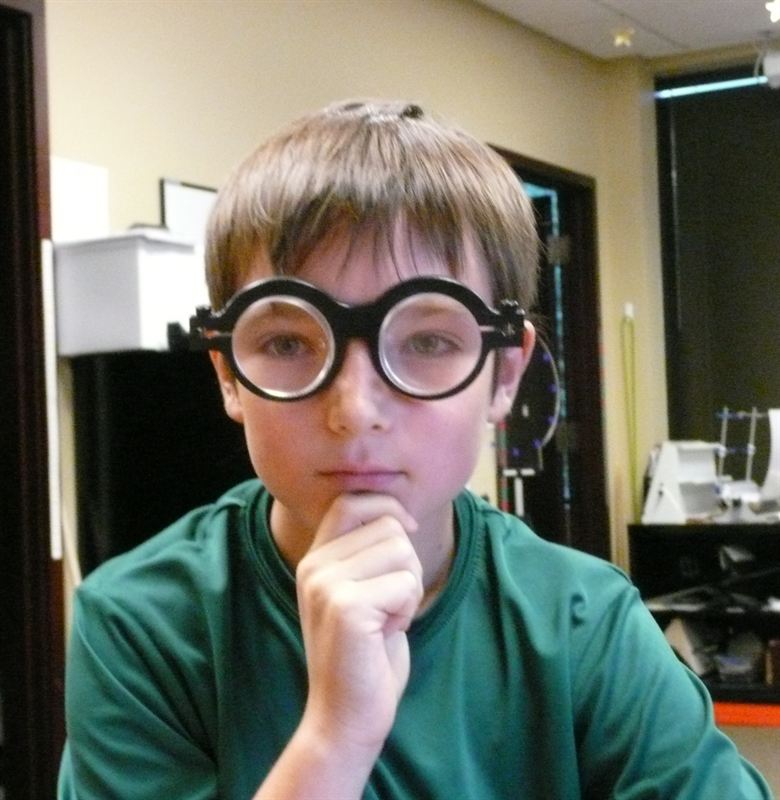Could Your Child’s Struggle with Reading and Learning be Due to an Undiagnosed Vision Problem? COVD Reaches Out to Parents to Answer Their Questions
As part of the College of Optometrists in Vision Development’s annual international observance that August is Children’s Vision and Learning Month, a Public Service Announcement was issued which helps answer parents’ questions about why their children continue to struggle with reading and learning.
“Whether it is the mystery of the bright child who struggles with reading or the child who takes forever to do homework, the story is often the same,” shares Ida Chung, OD, FCOVD, President of COVD, “these children continue to struggle until the underlying vision problem is identified and treated.”
Dr. Chung knows firsthand what it is like to struggle with reading because of her own unidentified vision problem. “I remember going to parent-teacher conferences with my mother so I could translate what the teacher had to say. And I remember the teacher saying ‘you have to get your daughter to read more; have her read 20 minutes a day.’ So my mother began the nightly ordeal of forcing me to read for 20 minutes. I couldn't wait for those 20 minutes to be over because I just didn't like reading.”
Even though Dr. Chung’s mother took her for yearly eye exams, it wasn't until she was in her first year of optometry school that her vision problem was identified and finally treated. She had an eye coordination disorder, convergence insufficiency, which is very common. The actual symptoms will vary depending on how severe the disorder is, but convergence insufficiency can make reading nearly impossible. Dr. Chung shares, “After a program of optometric vision therapy I was able to read faster and found it more enjoyable.”
While most vision screenings are not designed to test for eye coordination and eye movement disorders, one of the more common reasons these vision problems are missed is because they can easily be mistaken for behavior problems, attention problems, and even learning disabilities.
Another example of an undiagnosed vision problem is shown in the story for Jayden Catarra. “As a parent, when teachers are constantly saying your child is distracted, unorganized, unable to stay on task, disruptive, etc... your instinct is that it is a ‘behavior’ issue and not a physiological issue,” shares Corrie Catarra. “My son, Jayden, could see... he didn't need glasses (according to the first eye doctor we saw) and the concept that his eyes could be the issue was hard for us to comprehend.”
“Jayden had a terrible time doing homework. We dreaded homework time with Jayden,” Mrs. Catarra continues. “When he would come home from school he would have to take some time to ‘re click’ as I called it. Most kids would come home and do their homework right away so that they could play. Jayden HAD to play first. He needed time away from academics until after dinner. Then homework that took his peers about an hour to do would take him 2 or 3 times as long... depending on how his day went. He was very capable of doing the work but he was exhausted and often unable to stay focused without getting overwhelmed.”
Fortunately for Jayden, one of Mrs. Catarra’s co-workers had a daughter with a similar problem. Her co-worker found that optometric vision therapy made all the difference for her daughter, so Mrs. Catarra decided to give it a try.

Mrs. Catarra shares that after completing vision therapy, “The classroom setting is definitely easier for Jayden now that he can copy things off the board easily, stay on task, and track the teacher. Since he is able to keep up with the class his confidence and self-esteem have soared. He is able to complete homework as soon as he gets home with very little frustration. He is able to watch an entire movie without losing interest and yes... he is better at video games now!”

Undiagnosed vision problems are an international problem. Dr. Chung recently returned from a visit to one of China’s leading centers for eye health, Tianjin Medical University Eye Hospital, where she was invited to speak about optometric vision therapy and the different vision disorders it treats to more than 150 eye care providers, including ophthalmologists and optometrists. It is estimated that there are only a little more than 100 centers that provide vision therapy for a variety of conditions in all of China.
It is a huge task to educate the millions of parents whose children are struggling with school because of undiagnosed vision disorders. “This is why we are asking everyone to share our new PSA on social media with everyone they know,” Dr. Chung states. “Undiagnosed vision problems that interfere with a child’s ability to read and learn are prevalent in epidemic proportions. It will take a concerted effort on everyone’s part to help all of these children.”
CONTACT: Pamela R. Happ, MSM, CAE
COVD Executive Director
330.995.0718 tel
Email: phapp@covd.org
Website: www.covd.org
About COVD
The College of Optometrists in Vision Development (COVD) is an international, non-profit optometric membership organization that provides education, evaluation, and board certification programs in behavioral and developmental vision care, vision therapy, and visual rehabilitation. The organization is comprised of doctors of optometry, vision therapists and other vision specialists. For more information on learning-related vision problems, vision therapy and COVD, please visit http://www.covd.org/ or call 330.995.0718.
A series of public service announcements (PSAs) are available at covd.org to help raise awareness that vision problems can not only interfere with learning, but sports performance, and other activities of daily living. These PSAs also address vision problems that impact individuals who have autism spectrum disorders or those who have suffered a head injury.
Tags:


